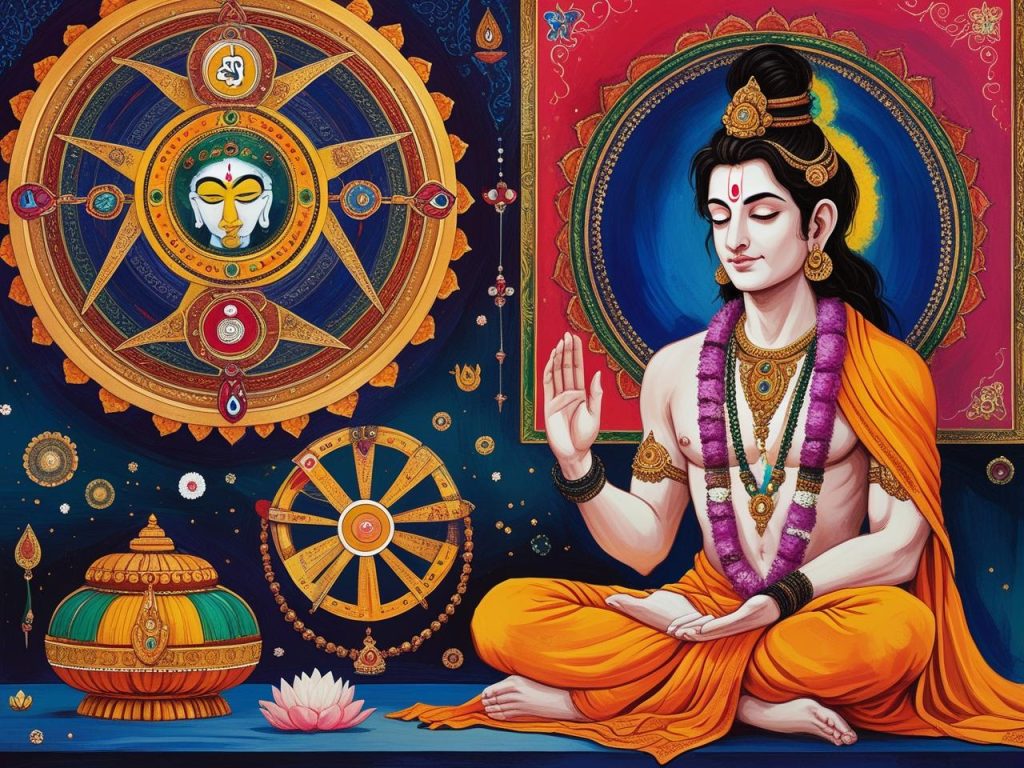Bhagwan Mahavir established the fundamental principles of righteous living that form the foundation of spiritual growth

Non-Violence
The highest virtue of not causing harm to any living being through thought, word, or action. Ahimsa extends beyond physical violence to include mental and emotional harm.
“In the welfare of all beings lies one’s own welfare” – Rishabhdev’s teaching on universal compassion

Truthfulness
Speaking and living in truth, avoiding falsehood in all forms. Satya means alignment between thought, speech, and action, creating harmony within and without.
“Truth is the foundation of all virtues and the path to liberation”

Non-ViolenceNon-Stealing
Refraining from taking what is not given, including material possessions, time, credit, and ideas. Asteya cultivates contentment and respect for others’ rights.
“One who practices non-stealing finds all treasures come to them”
Bhagwan Mahavir established the fundamental principles of righteous living that form the foundation of spiritual growth

 Meditation & Contemplation
Meditation & ContemplationRegular meditation to purify the mind and achieve self-realization through inner reflection and spiritual awareness
 Simple Living
Simple LivingEmbracing minimalism and contentment, focusing on spiritual wealth rather than material accumulation.
 Devotional Practices
Devotional PracticesRegular meditation to purify the mind and achieve self-realization through inner reflection and spiritual awareness.
Bhagwan Mahavir not only provided spiritual guidance but also laid the foundation of human society and culture

Discover the divine journey of Mahavir Swami

Learn the eternal wisdom and spiritual guidance

Visit sacred temples dedicated to Rishabhdev

Join upcoming festivals and spiritual gatherings
“Before Mahavir, humans lived like animals without culture, knowledge, or spiritual awareness. He transformed humanity by teaching them not just how to live, but how to live righteously, creating the very foundation of civilized society that we know today.”
The journey begins with true faith and belief in the teachings of the Tirthankaras, which provides the foundation for spiritual growth.
Understanding reality without doubts or misconceptions, focusing on soul, karma, and liberation as explained in Jain scriptures.
Practicing non-violence, truth, non-stealing, celibacy, and non-possession to purify the soul and progress on the spiritual path.
When right faith, knowledge, and conduct are perfected, the soul is freed from the cycle of birth and death, attaining eternal bliss.
The timeless teachings of Mahavir offer profound solutions to contemporary challenges
True faith in the teachings of the Tirthankaras, building a spiritual foundation free from doubts.
Understanding of soul, karma, and liberation — free from delusion and misconceptions.
Living ethically with non-violence, truth, honesty, celibacy, and non-possession.